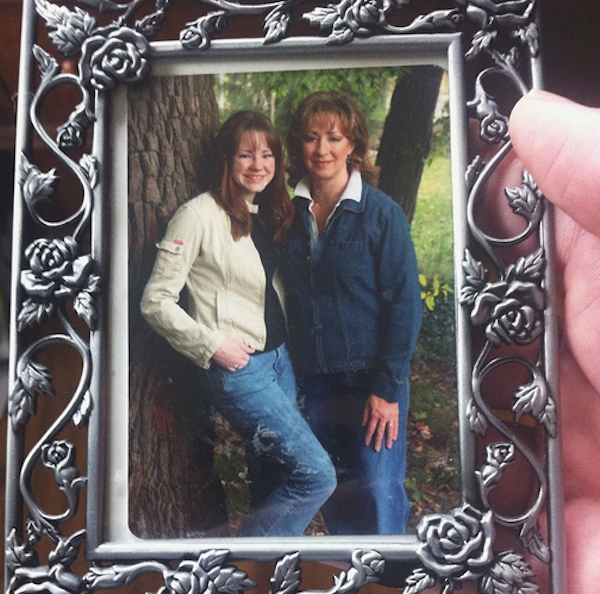This morning I looked through a stack of photos. It’s a ritual of remembering I set aside for this day every year, to honor you. I pause and let myself feel fully the weight of your absence. I come to grips with the reality, searching through this stack of photos, that I’ll never find what I’m searching for: you, present tense. You, with me as I am now. A picture of you, age 53, and me, age 27, arms around each other, smiling. The stack of photos in my hand feels so finite. I’m holding a window of time, a fixed frame, a chapter in a book.
I miss you, mom. I always will.

